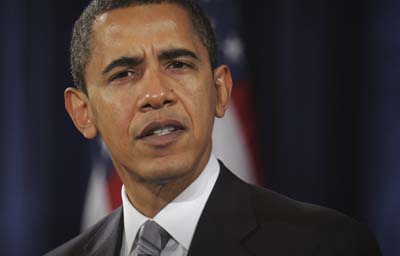The Obama administration signaled Sunday it was on the verge of
abandoning a government-run insurance option in its health care
overhaul _ a bow to political reality and a big win for
insurers.
By Andy Zajac, Tribune Newspapers
WASHINGTON
The Obama administration signaled Sunday it was on the verge of abandoning a government-run insurance option in its health care overhaul – a bow to political reality and a big win for insurers.
But, even without a public plan as competition, some experts said that would not completely relieve pressure on insurers to deliver cost savings.
Health and Human Services Secretary Kathleen Sebelius and White House spokesman Robert Gibbs said on the Sunday talk shows that a government insurance option is not essential, but keeping insurance affordable is.
“I think there will be a competitor to private insurers,” Sebelius said. “That’s really the essential part, is you don’t turn over the whole new marketplace to private insurance companies and trust them to do the right thing.”
Gibbs agreed, adding: “What I am saying is the bottom line for this for the president is, what we have to have is choice and competition in the insurance market.”
President Barack Obama continues to believe “the option of a government plan is the best way to provide choice and competition,” Gibbs said on CBS’ “Face the Nation.” But if there are other means to achieve that, “the president will be satisfied.”
Sebelius said on CNN’s “State of the Union” that a public insurance option is “not the essential element” of the health care overhaul.
A day earlier, Obama said “the public option, whether we have it or don’t have it, is not the entirety of health care reform.”
Proposals for a public health insurance plan have galvanized Republicans, and even some Democrats, who charge a government insurer will have unfair advantages and destroy the private health insurance market in the U.S.
“The fact of the matter is there are not the votes in the United States Senate for the public option,” Sen. Kent Conrad, D-N.D., a key Finance Committee health care negotiator, told “Fox News Sunday.”
Absent a public option, Congress is likely to focus on insurance cooperatives and insurance exchanges as private sector solutions.
Obama already has proposed forming exchanges – virtual marketplaces where private insurers would compete for consumers’ business.
Another option, championed by Conrad, is formation of a system of nonprofit cooperatives in which consumers would band together to negotiate coverage.
White House health care czar Nancy-Ann DeParle told Bloomberg Television this month the administration would consider cooperatives as a substitute for a public health plan if Obama’s conditions for enhanced choice and competition were met.









